Karauli Fort, a majestic structure nestled in the Karauli district of Rajasthan, stands as a testament to the grandeur of Rajput architecture and history. Known for its striking walls and intricate designs, the fort offers visitors a glimpse into the rich heritage of Rajasthan. Whether you’re a history enthusiast, a photography buff, or simply someone looking to explore the regal past of this region, Karauli Fort Rajasthan is a destination that promises to captivate and inspire. This guide provides all the essential details you need to plan your visit, from reaching the fort to exploring its beauty.
Karauli Fort Location
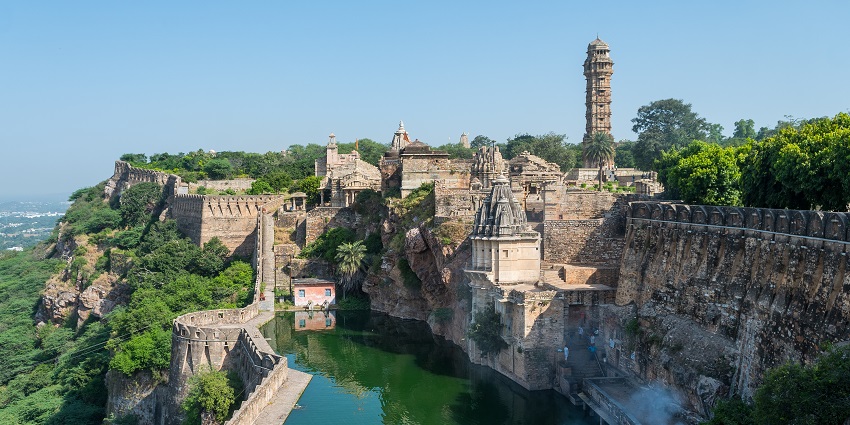
Photo: Jon Chica / Shutterstock / Image For Representation Only
Karauli Fort Rajasthan is situated in the Karauli district, approximately 160 kilometres from Jaipur. Perched on a hill, the fort’s strategic location offers sweeping panoramic views of the surrounding countryside. This elevated position not only highlights the fort’s historical importance but also provides visitors with stunning vistas of the lush, rolling landscape below.
Suggested Read: A Journey Through Rajasthan Forts
How To Reach Karauli Fort
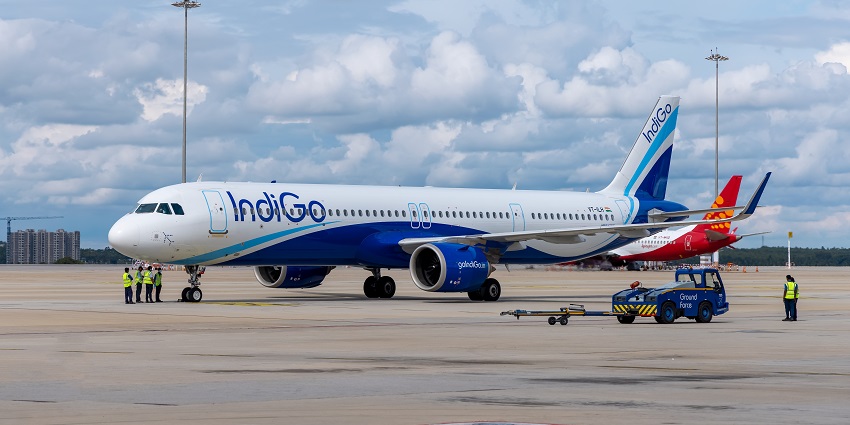
Photo: SNEHIT PHOTO / Shutterstock
By Road: Karauli is accessible by road from major cities like Jaipur (160 km) and Agra (250 km). Private taxis and rental cars are the most convenient options for reaching the fort.
By Train: The nearest railway station is in Hindaun City, about 90 km from the fort. From there, you can take a taxi or local transport to reach Karauli.
By Air: Jaipur International Airport is the closest major airport, approximately 160 km from the fort. From the airport, you can hire a taxi or take a bus to Karauli.
5 Places To Visit Around Karauli Fort
The fort is famous for its natural beauty and architecture. Explore the fort and the places near the fort.
1. Baba Harshnath Temple
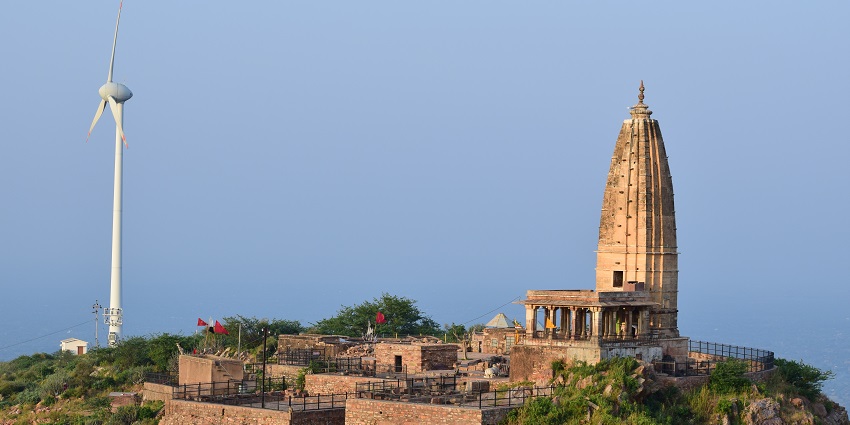
Photo: Mahaveershekhawat77 / Wikipedia
Located nearby, this ancient temple dedicated to Lord Shiva is a significant pilgrimage site that attracts visitors seeking both spiritual solace and architectural beauty. The temple’s intricate design reflects traditional craftsmanship, showcasing detailed carvings and sacred symbols that enhance its historical value. Surrounded by tranquil natural landscapes, the temple provides a serene environment that complements its spiritual significance. Visitors can experience a peaceful atmosphere, ideal for reflection and worship. The combination of the temple’s architectural elegance and its serene surroundings makes it a meaningful and calming destination for those exploring the area around the fort.
Best Time To Visit: February or March (During the Maha Shivaratri festival)
Entry Fee: N/A
Suggested Read: Harshnath Temple
2. Karauli City Palace

Photo: Yashaswi Garg / Wikimedia Commons / Image For Representation Only
The City Palace stands as a magnificent example of Rajput architecture and royal grandeur. This historic palace showcases intricate design elements with its beautifully maintained courtyards, lush gardens, and traditional decor. The architecture reflects the opulence and artistic flair of the Rajput era, with ornate carvings, elegant arches, and decorative elements that tell the story of Karauli’s royal lineage. The serene gardens and spacious courtyards offer a tranquil escape, allowing visitors to appreciate the palace’s cultural and historical significance while enjoying the royal ambience of the surroundings.
Best Time To Visit: October to March
Entry Fee: ₹50 (for Indians), ₹200 (for foreigners)
3. Vikramshila Museum
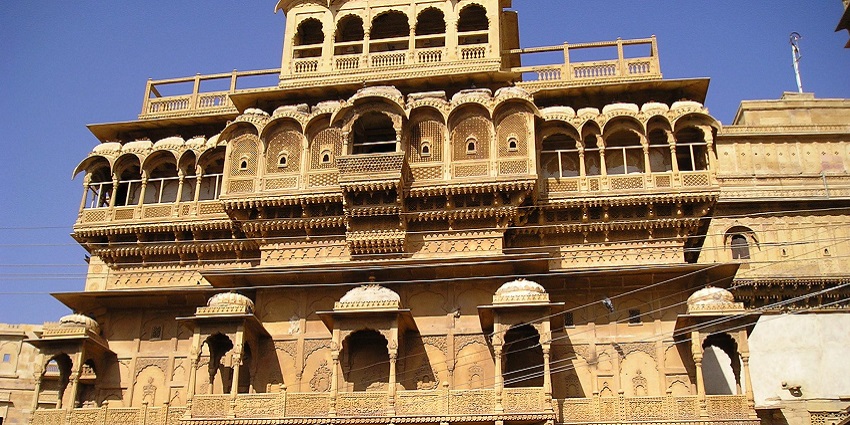
Photo: Kiral / Wikimedia Commons / Image For Representation Only
This museum offers an extensive collection of artefacts, sculptures, and paintings that highlight the rich history and cultural heritage of the Karauli region. The exhibits provide valuable insights into the local traditions, artistic achievements, and historical events that have shaped the area. Visitors can explore detailed displays that include ancient manuscripts, intricate sculptures, and historical paintings, each telling a story of Karauli’s past. The museum serves as a cultural repository, allowing guests to deepen their understanding of the region’s historical significance while appreciating the artistry and craftsmanship of bygone eras.
Best Time To Visit: Throughout the year
Entry Fee: ₹20 (for Indians), ₹100 (for foreigners)
Suggested Read: Bagore Ki Haveli Museum
4. Rani Mahal
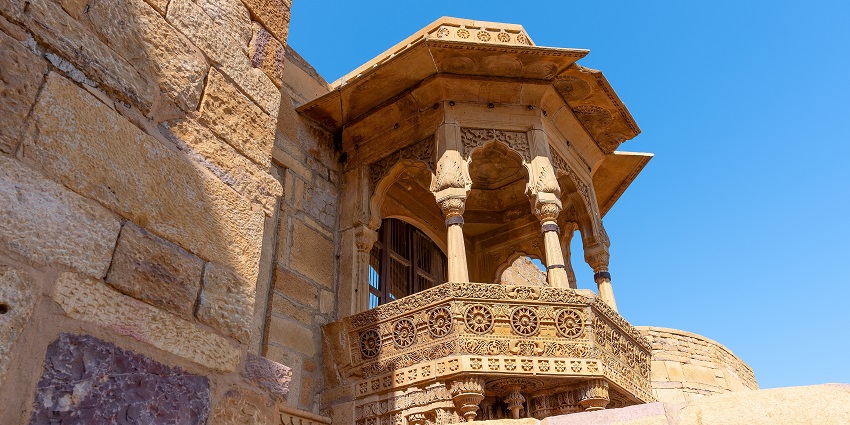
Photo: Rudra Narayan Mitra / Shutterstock / Image For Representation Only
Part of the Karauli Fort complex, Rani Mahal is renowned for its exquisite decorations and distinctive architectural style. Originally used as a royal residence, this palace provides an intriguing glimpse into the opulent lifestyle of the Rajput rulers. The Mahal is adorned with intricate frescoes, ornate carvings, and beautifully crafted interiors that reflect the grandeur and sophistication of Rajputana royalty. Visitors to Rani Mahal can marvel at its elegant design and luxurious features, which showcase the rich heritage and artistic achievements of the era. The palace’s historical significance and architectural beauty make it a must-see place.
Best Time To Visit: October to March
Entry Fee: N/A
5. Sati Bawri
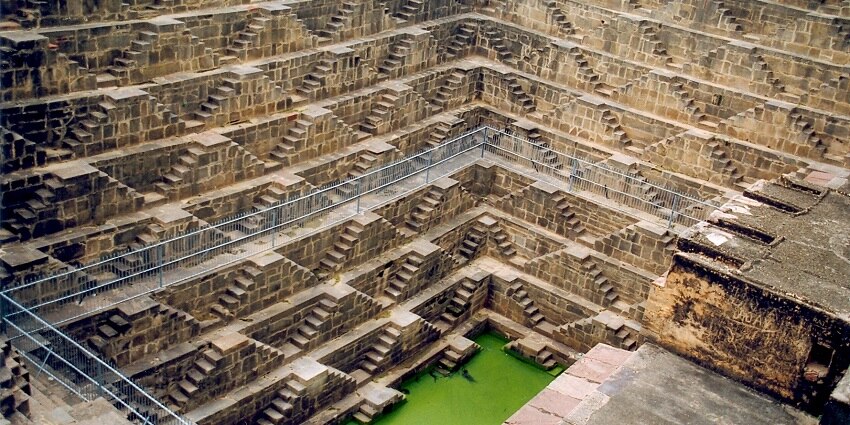
Photo: Doron / Wikimedia Commons / Image For Representation Only
A historical step-well located close to the fort, Sati Bawri is an impressive architectural marvel celebrated for its intricate carvings and tranquil ambience. Its original purpose was to provide a vital water source for the fort and the surrounding regions. It highlights the advanced engineering and architectural skills of its time. The step-well’s elegant design features detailed stonework and ornate decorations that reflect the artistic heritage of the era. Its serene surroundings and the historical significance of its use make Sati Bawri a fascinating destination for visitors interested in the region’s architectural and cultural history.
Best Time To Visit: October to March
Entry Fee: N/A
Suggested Read: Unlocking The Secrets Of Siwana Fort
Where To Stay
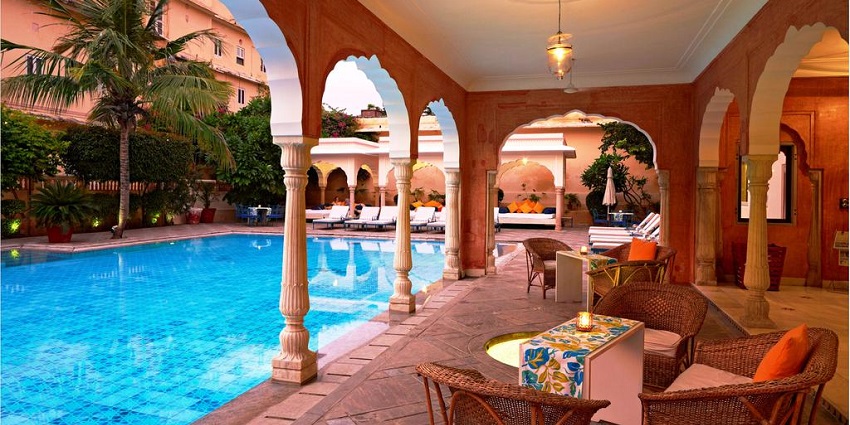
Photo: Pcrtravel / Wikimedia Commons / Image For Representation Only
Accommodation options near Karauli Fort Rajasthan cater to a variety of preferences, from budget hotels to more luxurious heritage properties. Visitors can select from local guesthouses or heritage hotels that provide a blend of modern comfort and traditional charm. Whether you prefer a simple and cosy guesthouse or a more opulent heritage stay, Karauli offers options to suit different tastes and budgets, ensuring a pleasant and convenient visit.
Where To Eat
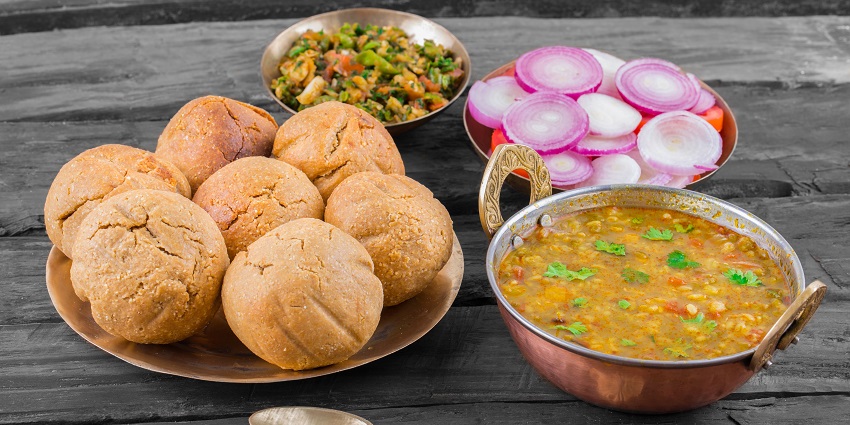
Photo: Indian Creations / Shutterstock / Image For Representation Only
Dining options in Karauli offer a delightful array of local eateries and restaurants specializing in traditional Rajasthani cuisine. Visitors can savour authentic dishes such as dal baati churma, a flavorful combination of lentil soup, baked bread, and sweet crumbled wheat, gatte ki sabzi, a savoury curry made with gram flour dumplings, and ker sangri, a unique dish featuring desert beans and berries. For a truly immersive culinary experience, explore local dhabas and traditional restaurants that serve these regional specialities in a rustic, authentic setting.
Suggested Read: The Best Foods In Rajasthan
Best Time To Visit Karauli Fort
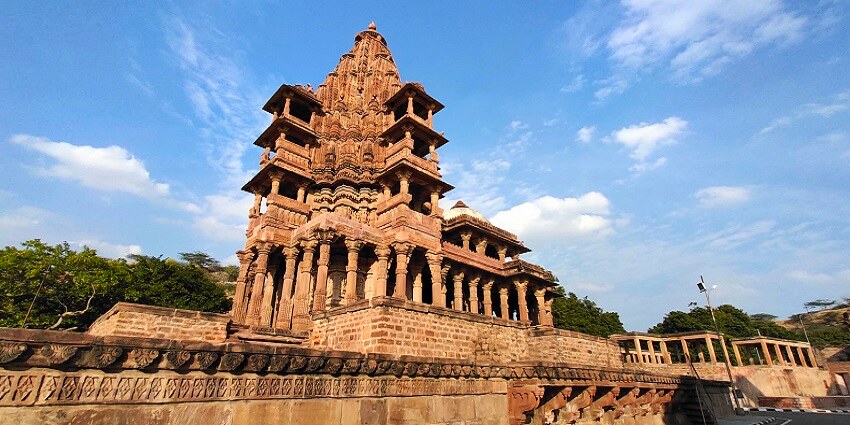
Photo: Labhesh karesia / Wikimedia Commons / Image For Representation Only
The ideal time to visit Karauli Fort is between October and March when the weather is cooler and more comfortable for exploring the fort and its surroundings. During these months, temperatures are pleasant, enhancing the experience of sightseeing and allowing for more enjoyable outdoor activities. In contrast, the summer months can bring extreme heat, which can make touring the fort and its vicinity less comfortable.
Other Things To Consider
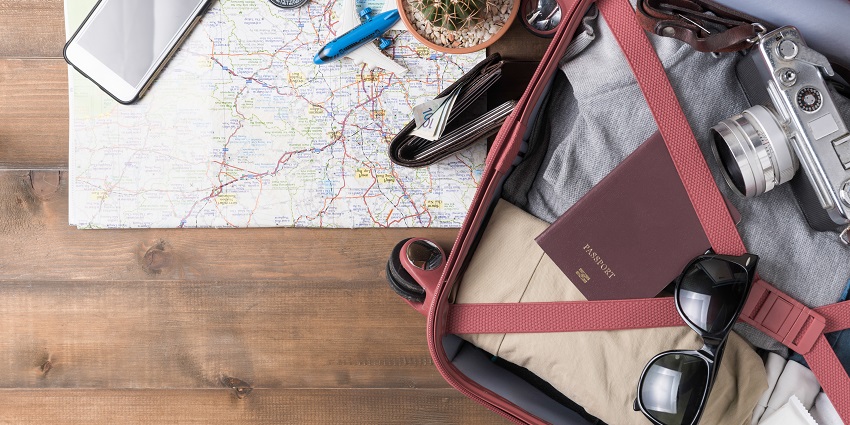
Photo: kwanchai.c / Shutterstock / Image For Representation Only
Photography: Karauli Fort pictures are a great way to capture the fort’s majestic architecture and scenic views. Photography is allowed, but it’s best to confirm any restrictions upon arrival.
Local Guides: Hiring a local guide can enrich your visit, providing deeper insights into the fort’s history and significance.
Travel Essentials: Carry water, sunscreen, and comfortable shoes for walking, as exploring the fort and its surroundings involves a fair amount of walking.
Suggested Read: Explore The Haunted Forts In Rajasthan For A Spine-Chilling Adventure
Karauli Fort Rajasthan is a remarkable destination that combines historical grandeur with scenic beauty. The centrepiece of the region, the fort is renowned for its massive walls, intricate frescoes, and stunning architecture. Built-in the 14th century, it has been a witness to the region’s history and remains an iconic landmark. Plan your visit, immerse yourself in the history, and take in the stunning views that this historic fort has to offer with TripXL.
Cover Photo: F.Rubino / Shutterstock


 WhatsApp
WhatsApp
 Twitter
Twitter









